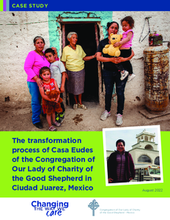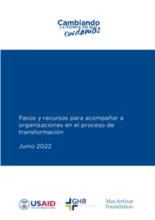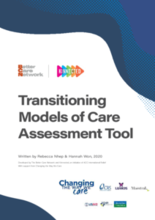Turning collected information into action
By this stage a lot of information has been collected and a lot of important insights have been gained that will influence the approach to transition. This stage is about making sense of all the information and integrate it into an overarching strategy that will guide the implementation of the transition.
The aim of this stage is therefore to synthesis the information and develop an overarching strategic plan, a budget/financial plan, and a monitoring and evaluation plan to track effectiveness throughout the implementation stage.
This stage is largely concerned with synthesizing information and formulating plans. Activities that may occur during this stage include:
- Using the Transitioning Models of Care Assessment Tool to synthesis information collected from assessments, stakeholder engagements and systems surveying to:
- Identify risks that need to be managed
- Identify key opportunities
- Formulate a list of strategic actions
- Determine the right end goal - full transition or safe closure/divestment
- Rate the overall risk and readiness for transition
- Determine the appropriate starting point for implementation
- Cost modelling/ cost projection analysis to estimate the potential costs of transition throughout the implementation phase
- Identifying ways to fund spike costs associated with transition
- Planning meetings/ participatory planning sessions, including with young people in care, to develop the strategic plan and any associated action plans.
- Determining the appropriate time to begin to explore post transition programming
- Forming a committee to help guide the transition process
Elements that may need to be included in a strategic plan are:
- Stakeholder engagement, consultation and communication
- Risk mitigation strategies and responses
- Pre-determining triggers warranting exploration of divestment (for donors)
- Organizational and governance strengthening activities and goals
- Human resources, staff training and capacity development
- Technical support and partnerships
- Developing the social work case management practice framework
- Service mapping
- Community level sensitization and awareness raising
- Supervision framework and monitoring
- Budget and fundraising strategy
- Monitoring and evaluation framework
Key milestones associated with this stage are, the organization and/or technical support provider have:
- Developed a comprehensive strategic plan to guide the transition. This may include post transition programming if the organisation was well positioned to conduct necessary assessments and analysis prior to commencing the implementation phase of transition (see phase three)
- Developed a budget for the transition
- Formulated a training and development plan for practitioners/staff
Resources
Displaying 11 - 15 of 15
This case study highlights the transition of the Sisters of Our Lady of Charity of the Good Shepherd in Ciudad Juarez. It is an honest look at the emotional, logistical, and practical elements involved in transitioning from a residential care model which existed for more than 100 years to a provider of community-based and family-centered services.
Este documento está diseñado para orientar a las personas u organizaciones que están apoyando un proceso de transición para pasar de proporcionar atención residencial a un modelo que promueva la atención familiar y comunitaria. El documento está diseñado en torno a las Fases de la Transición de Better Care Network. Se basa en el trabajo que Changing the Way We Care ha realizado en los últimos años para apoyar a diferentes proveedores de atención residencial, tanto religiosos como laicos, en su propio proceso de transición. Hay ejemplos y enlaces a herramientas relevantes, mensajes y actividades sugeridas que pueden utilizarse para apoyar las diferentes fases del proceso.
This tool is designed as an assessment framework that assists practitioners to identify and analyze the key starting point dynamics and determine implications for strategy in their work to transition an organization's model of care of children from institutional to a non-institutional model.
CAFO engaged with markempa to study how OVC-serving organizations inspired donors to give toward a new model of family-based care. In this guide, you’ll learn the five steps to help transition your donors to improve fundraising outcomes and create the financial capacity to provide better care for vulnerable children and families.




